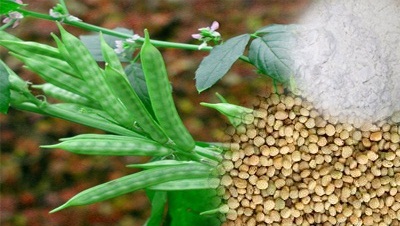Guar gum powder is a versatile ingredient used in various industries, including food, pharmaceuticals, and cosmetics. Its wide-ranging applications make it essential for manufacturers to maintain consistent product quality. Quality control in guar gum powder production is crucial to ensure that the end product meets the desired standards. In this comprehensive guide, we will provide step-by-step instructions on quality assurance procedures and testing methods for manufacturers. Whether you are a seasoned producer or a newcomer to the industry, this guide will help you optimize your production process and deliver high-quality guar gum powder.
Introduction
Guar gum powder is derived from guar beans and is known for its unique properties as a thickening and stabilizing agent. Its widespread use in the food industry, especially in products like ice cream, sauces, and baked goods, highlights the importance of maintaining consistent quality. Poor-quality guar gum can lead to undesirable product characteristics, customer complaints, and financial losses. To ensure the quality of your guar gum powder, you must follow a rigorous quality control process throughout production.

Raw Material Selection
Choosing the Right Guar Beans
The quality of guar gum powder starts with the selection of the right guar beans. Here are key factors to consider:
Variety
Select a guar bean variety that is known for high gum content. The two main varieties are Cyamopsis tetragonoloba and Cyamopsis psoraloides.
Purity
Ensure that the selected beans are free from contaminants, such as dirt and foreign particles.
Storage Conditions
Proper storage of guar beans is essential to prevent deterioration. Store the beans in a cool, dry place with controlled humidity to maintain their quality.
Production Process
Extraction and Processing
The guar gum extraction process involves several stages, including cleaning, dehusking, grinding, and sieving. Each step must be carefully monitored to maintain the integrity of the gum.
Hydration
The hydration step is critical for achieving the desired viscosity. It involves mixing guar gum with water under controlled conditions.
Grinding
Grinding the hydrated gum produces guar gum powder. The fineness of the powder affects its performance in various applications.

Quality Assurance Procedures
In-process Testing
Throughout the production process, conduct in-process testing to ensure that the gum meets quality standards. This includes:
Viscosity Testing
Measure the viscosity of the guar gum solution to ensure it falls within the specified range.
Particle Size Analysis
Regularly check the particle size of the guar gum powder to maintain consistency.
Final Product Testing
Before packaging, perform comprehensive tests on the final product to guarantee its quality:
Purity Testing
Check for impurities and contaminants in the guar gum powder.
Microbiological Testing
Ensure that the product is free from harmful microorganisms.
Moisture Content
Maintain the ideal moisture content to prevent clumping and extend shelf life.
Common Challenges and Solutions
Hydration Difficulties
Some challenges in guar gum production include difficulties in achieving proper hydration. To address this:
ptimize Mixing Conditions
Adjust mixing parameters to ensure uniform hydration.
Viscosity Variation
Viscosity inconsistency can occur due to factors like temperature fluctuations. To mitigate this:
Temperature Control
Implement precise temperature control during processing.
FAQs (Frequently Asked Questions)
Conclusion
Maintaining quality control in guar gum powder production is essential to meet customer expectations and industry standards. By carefully selecting raw materials, monitoring the production process, and implementing rigorous testing procedures, manufacturers can ensure the consistent quality of their guar gum powder. Remember that quality assurance is an ongoing process, and continuous improvement is key to staying competitive in the market.
Web Design & Digital Marketing by Opal Infotech

